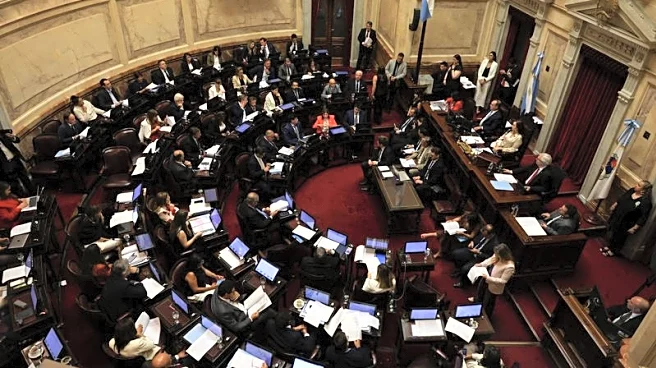What's Happening?
A recent study has proposed a comprehensive framework for famine prevention, identifying five levels of intervention: averting, anticipating, reducing, altering, and preventing famine risks. The study highlights the need for both technical and political
approaches to address the increasing risk of famine due to conflict, climate change, and economic shocks. The framework aims to integrate various initiatives and actors to enhance global famine prevention efforts. The study draws on interviews with humanitarian experts and a literature review, emphasizing the importance of political will and accountability in preventing famine.
Why It's Important?
The proposed framework is significant as it addresses the multifaceted nature of famine prevention, combining technical and political strategies. By engaging all five levels simultaneously, the framework aims to create a more effective global response to famine risks. This approach could lead to better coordination among humanitarian organizations, governments, and international bodies, potentially reducing the occurrence and impact of famines. The study underscores the need for political commitment and accountability to ensure the success of these efforts, highlighting the role of international cooperation in addressing global hunger.
What's Next?
The study suggests that implementing the framework will require significant political and financial commitment from international stakeholders. Future steps may include the establishment of high-level initiatives focused on famine prevention, increased funding for resilience and anticipatory actions, and enhanced collaboration between humanitarian and political actors. The framework also calls for improved data sharing and real-time monitoring to better predict and respond to famine risks. Stakeholders may need to address challenges such as political manipulation of findings and the need for more comprehensive early warning systems.
Beyond the Headlines
The study highlights the ethical and political dimensions of famine prevention, noting that famine creation is often a political act. It calls for greater accountability mechanisms to deter actors from prioritizing famine creation. The framework also emphasizes the importance of addressing structural inequalities and power dynamics that contribute to famine vulnerability. By focusing on long-term trends such as climate change and economic volatility, the framework aims to alter the underlying causes of famine, promoting sustainable development and resilience.
















